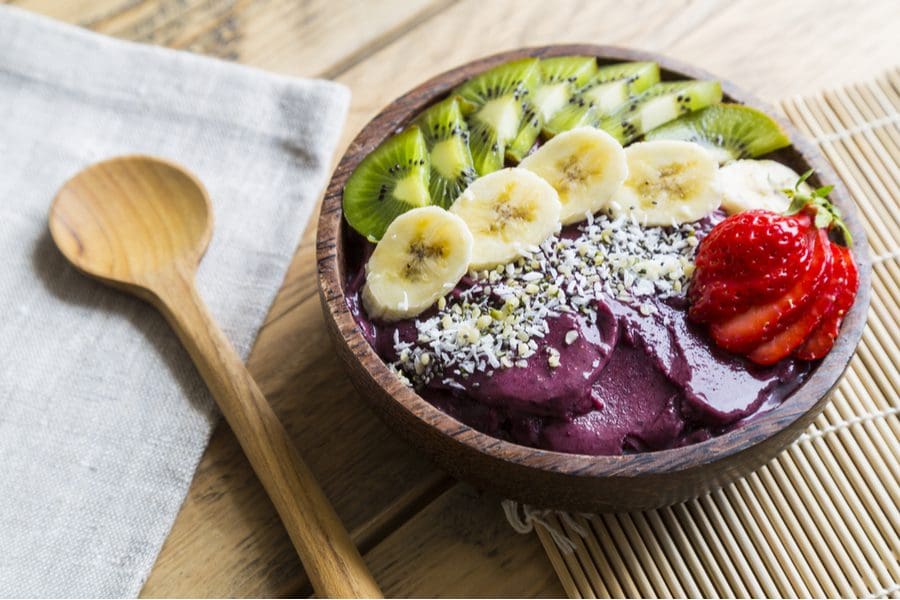Dark purple acai berries deliver a nutritious punch that may protect your brain and heart while boosting overall health. Their delicious, earthy taste is often described as somewhere between unsweetened chocolate and blackberries. While you may not find fresh acai berries from Brazil in your grocery, there’s a plentiful supply sold as frozen fruit purée, dried powder and pressed juice. Read the labels for frozen purées and juices that do not contain excessive added sugar. One popular way to get the health benefits of this superfood is creating an acai bowl.
How to make an acai bowl
Blend unsweetened frozen purée with water or milk to create a smoothie-like base for an acai bowl and then top with sliced fruit or berries, nut butters, toasted coconut flakes, cocoa nibs or chia seeds. Or mix acai powder into your favorite smoothie recipe and add toppings.
Acai berries are rich in nutrition
Acai berries have a unique nutritional profile for a fruit, as they’re somewhat high in healthy fat and fiber while low in sugar. Some of acai’s most powerful health benefits come from plant compounds called anthocyanins, which give acai berries their deep purple color and act as antioxidants in the body.
They could improve aging brain function
Acai may boost brain function by countering the damaging effects of inflammation and oxidation that impair learning and memory. While researchers have found no cure for age-related brain diseases such as Alzheimer’s disease and Parkinson’s disease, they say that diets rich in antioxidants and anti-inflammatory compounds may lower the risk of these diseases.
One study found acai actually helped improve memory in aging rats. Studies found the berries also help the brain clean up cells that are toxic or no longer working. This housekeeping process known as autophagy enhances communication between brain cells and clears the way for new nerves to form.
They may protect the heart
The fiber and heart-healthy fats in acai also support heart health. Studies suggest it’s possible that the anthocyanins in acai could be responsible for lowering both HDL and LDL cholesterol levels. Although scientists say they need more research to reach conclusions on these studies performed with animals, they think acai berries could have a similar effect on humans.
One study has found that regular consumption of anthocyanins can reduce the risk of heart attack by 32 percent in young and middle-aged women. Acai berries also contain the plant sterols that prevent your body from absorbing cholesterol.
They’re higher in antioxidants than even blueberries
Acai berries are loaded with more antioxidants than cranberries and a whopping three times the amount of antioxidants found in blueberries. This makes them an important leader in neutralizing the damaging effects of free radicals throughout the body. Free radicals left to roam unchecked can damage cells and lead to diseases such as cancer, diabetes and heart disease.
They may fight cancer
Researchers say acai could have a role in treating cancer in the future, but they say further studies with humans are required before they reach conclusions. Animal studies and test tube studies of mice have found acai pulp reduced the incidence of bladder and colon cancer. A second study of mice found acai pulp did not make a difference in fighting stomach cancer. Scientists already rank acai among the foods that are known to stop cancer cells from forming and spreading.






